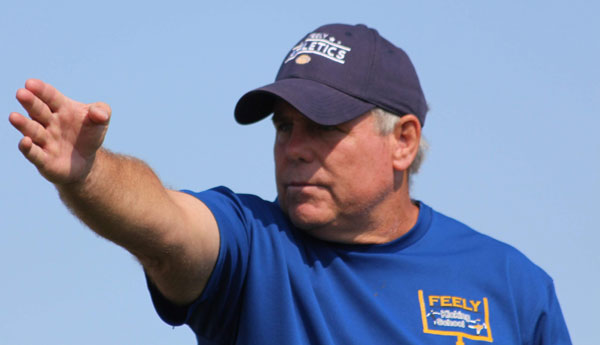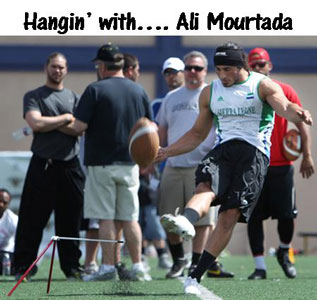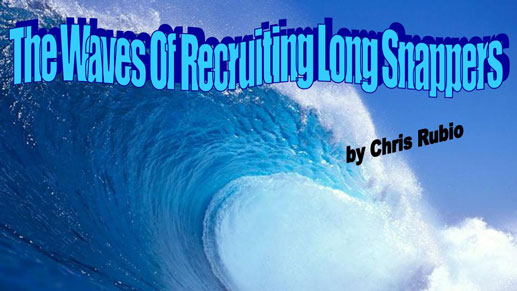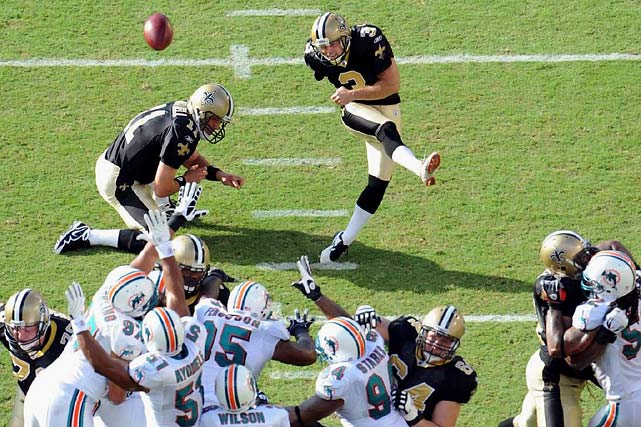The Recruiting Labyrinth
Recruiting Realities Changes with the Speed of Light
It was 1994 and my son, Jay Feely was a senior at Jesuit High School, having just completed two very successful years as the football team’s placekicker. He was fortunate to have had Coach Dominic Ciao as his Head Football Coach, because unlike the majority of coaches I knew, Coach Ciao was a relentless recruiter for his players. It was very rare that he did not place 7 or 8 guys in D1 schools from his crop of graduating seniors. The reality is that many coaches only pay lip service to the importance of the high school coach’s role in the recruiting process, but never really devote the time to successfully promote their guys on the recruiting “bubble”.
As a football coach myself I knew that when it comes to “bubble” players (those who may or may not get recruited) the parent must become an active participant in the process, especially when it pertains to Special Teams positions.
In 1993-94, technology was emerging, but the internet was still in its infancy. What I did to assist my son’s recruitment was everything the resources I had available would allow, including making hundreds of paper copies of resumes, news articles and VHS tapes of his game highlights and sending them out to everyone I could think of. That, and the efforts of his coach paid off and he got several D1 offers but none that really appealed to him. Jay ended up accepting a “walk on” offer from Michigan that ultimately did not turn into a scholarship offer until after Notre Dame made a very late bid offering him a scholarship. Michigan signed Jay the day fall practices were to begin. It was a very stressful ordeal!
Fortunately, two decades later we have many more ways to help our student athletes get recognized by colleges.
The Recruiting Labyrinth-Part 1: The Core Components
Technology, and social media, has changed the recruiting process dramatically, and those changes are soon to be overshadowed by even newer innovations. The trick is to take every advantage of these technological opportunities to gain an edge on the competition, but in so doing one needs to start with a overall plan.
I have had five sons of my own go through this process, and the methods and strategies I used were different for each one of them because I wanted to discover or create a better "mouse trap". I have also used what I have learned from those five experiments to help hundreds of others get discovered and eventually placed in a college football program.
The recruiting process, while it has some similarities with other football positions, is also quite unique from the other football positions, thus a different overall strategy is in order. I will be discussing most of the strategies that can or should be employed in a comprehensive plan for a football kicker, punter and long snapper.
First, before you set out to pursue a college scholarship, make sure you have, or will have, the necessary skills that put you in range to compete at that level.
Often, I hear from parents and players statements that are based in myths that are not reality. Getting a scholarship, and even a walk on slot on a college team is very competitive and difficult today, especially for kickers. It is simple economics, the supply of quality kickers coming out of the high school ranks continues to increase much faster than the demand for quality kickers by colleges. More kicking coaches are in the market training more kickers and the quality of skilled kickers has increased tenfold. To best situate yourself to be competitive I recommend these initial Core Components to a successful campaign:
1). Find a very competent kicking coach with a solid reputation and strong college connections and train with him as often as possible.
2). Become a kicker and a punter, or a long snapper who plays another position.
3). Take the most rigorous courses you can in high school and get the best grades possible.
Lets look at why these so important that I mention these three components before any other strategies.
- Find a very competent kicking coach: Since I became an Associate with the National Camp Series back in 2006, I have had the honor of meeting many great kicking coaches from around the U.S. One thing that has resonated loudly in watching the kids perform at our camps is that the ones who perform the best in our evaluations are the kids who are trained by these coaches. These, ultimately are the same kids that get scholarships in college because their skill level is superior to those not being trained, and their kicking coaches are helping them get placed. Coaches who are affiliated with a network, such as the National Camp Series, have the advantage of helping each other find schools for each other’s
Athletes. We routinely share information about colleges we know that are looking or help each other find a home for a not yet placed athlete.
(2) Become a kicker/punter: This goes back to my economics law of supply and demand. The supply of good kickers is very high today, but the supply of good punters has not caught up yet. Most college coaches desire a combo kicker/punter guy so he can bring in or travel with fewer specialists. It is my observation that the majority of the first kids to get offered are guys who are combo kicker/punters and they are good at both. The same principal applies to long snappers. Your stock value increases if you are capable of playing more positions than just one. This is true for college and the pros. The guys who play several positions and are good long snappers are more likely to get scholarship offers than a long snapper is who can't play another position at that level.
3) The third of the above Core Strategies sounds like a pitch from a guidance counselor (which I am) but it still holds true for my athletes. The better your academic profile, the more opportunities you will have to be recruited. So many colleges have restrictions on who they can recruit because they have academic standards that demand well prepared student/athletes. The better the student athlete's transcripts are the more potential colleges they will qualify for and the more one's chances of getting a great education will be.
As good friend and colleague of mine, former NFL kicker, Michael Husted, frequently points out to his student-athletes that what they are doing is "leveraging their athletic skills to get an education". That clearly puts this into perspective as we get so hung up on the trappings of this process that we lose sight of our ultimate goal; To get that college education, in order to be able to have a better life. You are using your sports skills as a tool to help make that happen.






